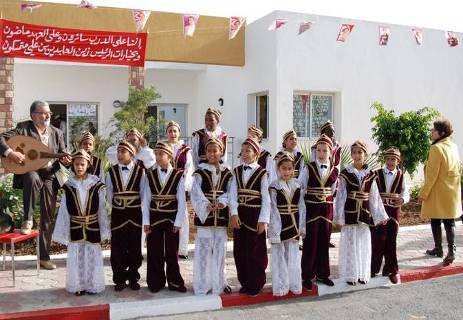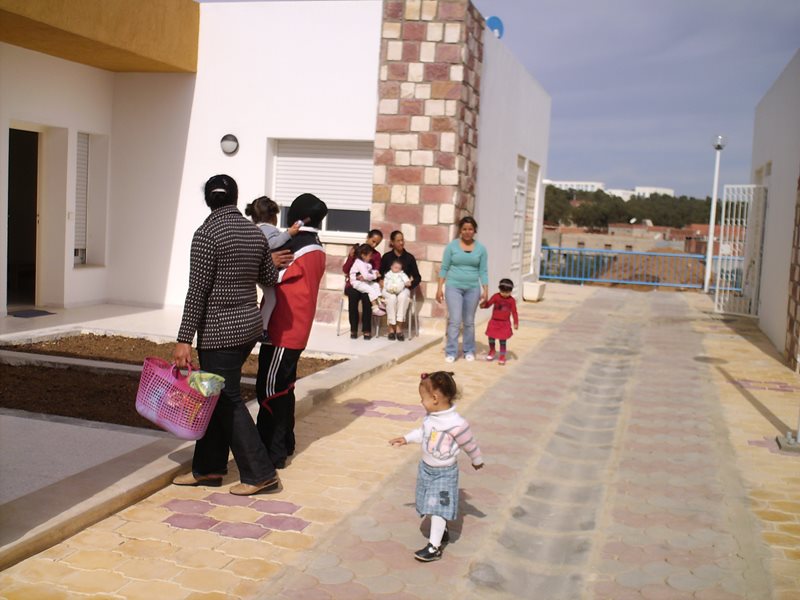With tourism on the decline, unemployment is skyrocketing

The small town of Akouda is located on the central-eastern Tunisian coast and has around 22,000 inhabitants. SOS Children’s Village Akouda is located on the outskirts of town, just a few kilometres from Tunisia’s third largest city, the seaport Sousse. Although there are also large olive groves in the region, tourism is the main pillar of the local economy.
The coastal regions have always been relatively privileged in comparison to the impoverished interior of the country. But Tunisia’s 2011 “Jasmine Revolution” caused a downturn in the tourism industry, from which the region has yet to recover.
Tunisia is still very much in a state of transition and for many disadvantaged communities, it seems things have had to get worse before they can get better. Over 18 per cent of the workforce is unemployed and around 1.2 million Tunisians are estimated to live below the national poverty line. Young people are most severely affected: over 30 per cent of people aged 15-24 are unemployed, and up to 44 per cent of young university graduates are unable to find work.
The minimum monthly wage is around 142 US dollars for a 40-hour workweek. This low disposable income is also evident in the goods people own: only 14.4 per cent of Tunisians own a computer, and 22.7 per cent own a car. Fortunately, though, since the change of government, the internet has become freely accessible, without limitations on content.
Children from disadvantaged families struggle for a fair chance in life
Due to the high levels of poverty in rural Tunisia, thousands of people migrate to the cities each year. Sousse is a popular destination as millions of tourists bring wealth to the region. However, employment and housing are not available to all. Many young men resort to so-called “Bezness” – seeking out single European women for the purposes of marriage for a visa or money.
Many people can be seen collecting plastic on the streets to sell for around 0.2 euros per kilo. There is also a large grey economy in Sousse, which includes many vendors, market traders, and tourist guides. These people pay no taxes, are not insured and receive no support in case of illness – but for many this is the only way to support their family.
While primary school enrolment rates are now fairly high, at 94.5 per cent, and more or less equal for boys and girls, there are still almost 20 per cent of the population who have never received any education in their lives. Children whose parents have neither an education nor a formal job start out at a great disadvantage in life. Families therefore need support so that children can grow up to be confident and successful adults.
What we do in Akouda

SOS Children’s Villages began working in Akouda in 2010. Today, our SOS Social Centre offers a family strengthening programme, which reaches out to struggling members of the local community and provides support. We ensure that children have access to essential education, nutritional and health services, and we provide counselling where needed.
We offer parents guidance on income-generating skills and parenting practices. In collaboration with local organisations, we also work towards strengthening the already existing support networks within the community. Around 300 children and their adult caregivers currently benefit from the programme.
For children in the region who are no longer able to live with their parents, 14 SOS families can provide a loving home for up to 112 children. In each family, they live with their brothers and sisters and are affectionately cared for by their SOS mother.
The children from the SOS Children’s Village attend the local kindergarten together with children from the community and the family strengthening programme. This means that children from SOS families are integrated into the local community from a young age.